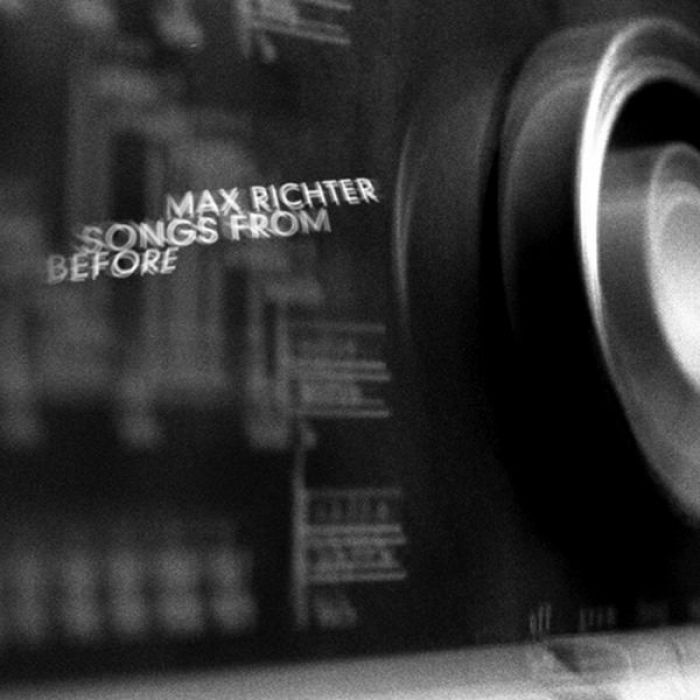Songs From Before by Max Richter (Review)

For his latest album, Songs From Before, English composer Max Richter works with the same basic formula that served him so well on 2004’s The Blue Notebooks. That is, combining spoken word pieces with elegiac string arrangements, field recordings, and subtle electronics. But whereas The Blue Notebooks’s pieces were built around Tilda Swinton’s readings of Franz Kafka, Songs From Before uses Robert Wyatt’s readings of various Haruki Murakami texts as embellishment.
Which, on the whole, works remarkably well. Richter’s string arrangements and subtle programming and electronics creates a mood that lethargic, dreamlike, melancholy mood that is perfectly suited to the themes of loss, nostalgia, and alienation that permeate Murakami’s work.
Listening to tracks such as “Song” and “Harmonium,” it’s difficult to not imagine yourself as Toru Okada, the protagonist of The Wind-Up Bird Chronicle (arguably Murakami’s most famous novel), as he wanders through menacing, forlorn dreamworlds. “Sunlight” is one of the album’s most beautiful tracks, with its keening, swaying violin melodies that do indeed seem bathed in light — albeit the light that emanates from distant memories of childhood, memories that, through the passing of years, have become stained with loss and regret.
Wyatt’s readings of such Murakami texts as Sputnik Sweetheart and Norwegian Wood meld quite extraordinarily with Richter’s arrangements. As Wyatt reads “I’d venture into the city with the first gray of dawn and walk the deserted streets, and when the streets started to fill with people, I holed up back indoors to sleep” on “Flowers For Yulia,” Richter slowly builds up the piece, moving from distant, static-laden radio recordings to swelling strings that are both beautiful and portentous.
Meanwhile, fragments of voices drift through the static, barely audible but still adding yet another layer of eeriness to the proceedings — the way they might seem to the text’s protagonist as he drifts off to sleep, seeking to avoid human contact even as it hovers around him.
In one of the album’s most stirring moments, Wyatt reads a passage from Sputnik Sweetheart about the fragility and fleetingness of all things beautiful. As his worn voice trails off, emphasizing the final, sad words, Richter’s crystalline electronics swirl about in a spectral manner. Their hollow, ringing tones communicate the exact same tone of mono no aware — the sadness and passing of things — that is affecting and stirring in a way that words, no matter how beautiful they might be, simply cannot achieve.
While the combination of spoken word and more classical elements might smack of pretense, Richter manages to avoid that entirely. As with The Blue Notebooks, the results here are very affecting. If there’s one complaint, it’s that half of the tracks on Songs From Before clock in around a minute or so (the disc as a whole falls under 40 minutes). As such, many of them feel more impressionistic sonic sketches — beautiful certainly, but still sketches.
The result is an album that often seems like it’s barely begun before “From the Rue Vilin” closes things with a mournful piano tune that seems most appropriate for wandering through the fog-cloaked, rain-soaked streets of some eastern European city — that, or for the end credits of the most depressing Kieslowski film you’ve ever seen. But in a curious way, that quick passing, that transience, only adds to the album’s overall effect as it’s perfectly inline with the nostalgic themes so clearly associated with Murakami’s writings.
The album’s short length also makes it easy to listen to it several times in one sitting. Which only increases the overall effect of the music’s haunting nature. Just don’t be surprised if you find yourself filling a bit disquieted and melancholy for the remainder of the day.